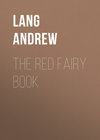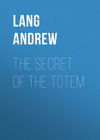Kitabı oku: «Adventures Among Books», sayfa 5
In one of his very latest writings, “On Thackeray’s Death,” Dr. Brown told people (what some of them needed, and still need to be told) how good, kind, and thoughtful for others was our great writer – our greatest master of fiction, I venture to think, since Scott. Some of the lines Dr. Brown wrote of Thackerary might be applied to himself: “He looked always fresh, with that abounding silvery hair, and his young, almost infantile face” – a face very pale, and yet radiant, in his last years, and mildly lit up with eyes full of kindness, and softened by sorrow. In his last year, Mr. Swinburne wrote to Dr. Brown this sonnet, in which there seems something of the poet’s prophetic gift, and a voice sounds as of a welcome home: —
“Beyond the north wind lay the land of old,
Where men dwelt blithe and blameless, clothed and fed
With joy’s bright raiment, and with love’s sweet bread, —
The whitest flock of earth’s maternal fold,
None there might wear about his brows enrolled
A light of lovelier fame than rings your head,
Whose lovesome love of children and the dead
All men give thanks for; I, far off, behold
A dear dead hand that links us, and a light
The blithest and benignest of the night, —
The night of death’s sweet sleep, wherein may be
A star to show your spirit in present sight
Some happier isle in the Elysian sea
Where Rab may lick the hand of Marjorie.”
CHAPTER IV: OLIVER WENDELL HOLMES
Never but once did I enjoy the privilege of meeting the author of “Elsie Venner” – Oliver Wendell Holmes. It was at a dinner given by Mr. Lowell, and of conversation with Dr. Holmes I had very little. He struck me as being wonderfully erect, active, and vivacious for his great age. He spoke (perhaps I should not chronicle this impression) – he spoke much, and freely, but rather as if he were wound up to speak, so to say – wound up, I mean, by a sense of duty to himself and kindness to strangers, who were naturally curious about so well-known a man. In his aspect there was a certain dryness, and, altogether, his vivacity, his ceaselessness, and a kind of equability of tone in his voice, reminded me of what Homer says concerning the old men around Priam, above the gate of Troy, how they “chirped like cicalas on a summer day.” About the matter of his talk I remember nothing, only the manner remains with me, and mine may have been a false impression, or the manner may have been accidental, and of the moment: or, again, a manner appropriate for conversation with strangers, each coming up one after the other, to view respectfully so great a lion. Among his friends and intimates he was probably a different man, with a tone other and more reposeful.
He had a long, weary task before him, then, to talk his way, ever courteous, alert, attentive, through part of a London season. Yet, when it was all over, he seems to have enjoyed it, being a man who took pleasure in most sorts of experience. He did not affect me, for that one time, with such a sense of pleasure as Mr. Lowell did – Mr. Lowell, whom I knew so much better, and who was so big, strong, humorous, kind, learned, friendly, and delightfully natural.
Dr. Holmes, too, was a delightful companion, and I have merely tried to make a sort of photographic “snap-shot” at him, in a single casual moment, one of myriads of such moments. Turning to Dr. Holmes’s popular, as distinct from his professional writings, one is reminded, as one often is, of the change which seems to come over some books as the reader grows older. Many books are to one now what they always were; some, like the Waverley novels and Shakespeare, grow better on every fresh reading. There are books which filled me, in boyhood or in youth, with a sort of admiring rapture, and a delighted wonder at their novelty, their strangeness, freshness, greatness. Thus Homer, and the best novels of Thackeray, and of Fielding, the plays of Molière and Shakespeare, the poems of – well, of all the real poets, moved this astonishment of admiration, and being read again, they move it still. On a different level, one may say as much about books so unlike each other, as those of Poe and of Sir Thomas Browne, of Swift and of Charles Lamb.
There are, again, other books which caused this happy emotion of wonder, when first perused, long since, but which do so no longer. I am not much surprised to find Charles Kingsley’s novels among them.
In the case of Dr. Holmes’s books, I am very sensible of this disenchanting effect of time and experience. “The Professor at the Breakfast Table” and the novels came into my hands when I was very young, in “green, unknowing youth.” They seemed extraordinary, new, fantasies of wisdom and wit; the reflections were such as surprised me by their depth, the illustrations dazzled by their novelty and brilliance. Probably they will still be as fortunate with young readers, and I am to be pitied, I hope, rather than blamed, if I cannot, like the wise thrush —
“Recapture
The first fine careless rapture.”
By this time, of course, one understands many of the constituents of Dr. Holmes’s genius, the social, historical, ancestral, and professional elements thereof. Now, it is the business of criticism to search out and illustrate these antecedents, and it seems a very odd and unlucky thing, that the results of this knowledge when acquired, should sometimes be a partial disenchantment. But we are not disenchanted at all by this kind of science, when the author whom we are examining is a great natural genius, like Shakespeare or Shelley, Keats or Scott. Such natures bring to the world far more than they receive, as far as our means of knowing what they receive are concerned. The wind of the spirit that is not of this earth, nor limited by time and space, breathes through their words, and thoughts, and deeds. They are not mere combinations, however deft and subtle, of known atoms. They must continually delight, and continually surprise; custom cannot stale them; like the heaven-born Laws in Sophocles, age can never lull them to sleep. Their works, when they are authors, never lose hold on our fancy and our interest.
As far as my own feelings and admiration can inform me, Dr. Holmes, though a most interesting and amiable and kindly man and writer, was not of this class. As an essayist, a delineator of men and morals, an unassuming philosopher, with a light, friendly wit, he certainly does not hold one as, for example, Addison does. The old Spectator makes me smile, pleases, tickles, diverts me now, even more than when I lay on the grass and read it by Tweedside, as a boy, when the trout were sluggish, in the early afternoon. It is only a personal fact that Dr. Holmes, read in the same old seasons, with so much pleasure and admiration and surprise, no longer affects me in the old way. Carlyle, on the other hand, in his “Frederick,” which used to seem rather long, now entertains me far more than ever. But I am well aware that this is a mere subjective estimate; that Dr. Holmes may really be as great a genius as I was wont to think him, for criticism is only a part of our impressions. The opinion of mature experience, as a rule, ought to be sounder than that of youth; in this case I cannot but think that it is sounder.
Dr. Holmes was a New Englander, and born in what he calls “the Brahmin caste,” the class which, in England, before the sailing of the May Flower, and ever since, had always been literary and highly educated. “I like books; I was born and bred among them,” he says, “and have the easy feeling, when I get into their presence, that a stable-boy has among horses.” He is fond of books, and, above all, of old books – strange, old medical works, for example – full of portents and prodigies, such as those of Wierus.
New England, owing to its famous college, Harvard, and its steady maintenance of the literary and learned tradition among the clergy, was, naturally, the home of the earliest great American school of writers. These men – Longfellow, Lowell, Ticknor, Prescott, Hawthorne, and so many others – had all received the same sort of education as Europeans of letters used to receive. They had not started as printers’ devils, or newspaper reporters, or playwrights for the stage, but were academic. It does not matter much how a genius begins – as a rural butcher, or an apothecary, or a clerk of a Writer to the Signet. Still, the New Englanders were academic and classical. New England has, by this time, established a tradition of its literary origin and character. Her children are sons of the Puritans, with their independence, their narrowness, their appreciation of comfort, their hardiness in doing without it, their singular scruples of conscience, their sense of the awfulness of sin, their accessibility to superstition. We can read of the later New Englanders in the making, among the works of Cotton Mather, his father Increase Mather, and the witch-burning, periwig-hating, doctrinal Judge Sewall, who so manfully confessed and atoned for his mistake about the Salem witches. These men, or many of them, were deeply-learned Calvinists, according to the standard of their day, a day lasting from, say, the Restoration to 1730. Cotton Mather, in particular, is erudite, literary – nay, full of literary vanity – mystical, visionary, credulous to an amusing degree.
But he is really as British as Baxter, or his Scottish correspondent and counterpart, Wodrow. The sons or grandsons of these men gained the War of Independence. Of this they are naturally proud, and the circumstance is not infrequently mentioned in Dr. Holmes’s works. Their democracy is not roaring modern democracy, but that of the cultivated middle classes. Their stern Calvinism slackened into many “isms,” but left a kind of religiosity behind it. One of Dr. Holmes’s mouthpieces sums up his whole creed in the two words Pater Noster. All these hereditary influences are consciously made conspicuous in Dr. Holmes’s writings, as in Hawthorne’s. In Hawthorne you see the old horror of sin, the old terror of conscience, the old dread of witchcraft, the old concern about conduct, converted into æsthetic sources of literary pleasure, of literary effects.
As a physician and a man of science, Dr. Holmes added abundant knowledge of the new sort; and apt, unexpected bits of science made popular, analogies and illustrations afforded by science are frequent in his works. Thus, in “Elsie Venner,” and in “The Guardian Angel,” “heredity” is his theme. He is always brooding over the thought that each of us is so much made up of earlier people, our ancestors, who bequeath to us so many disagreeable things – vice, madness, disease, emotions, tricks of gesture. No doubt these things are bequeathed, but all in such new proportions and relations, that each of us is himself and nobody else, and therefore had better make up his mind to be himself, and for himself responsible.
All this doctrine of heredity, still so dimly understood, Dr. Holmes derives from science. But, in passing through his mind, that of a New Englander conscious of New England’s past, science takes a stain of romance and superstition. Elsie Venner, through an experience of her mother’s, inherits the nature of the serpent, so the novel is as far from common life as the tale of “Mélusine,” or any other echidna. The fantasy has its setting in a commonplace New England environment, and thus recalls a Hawthorne less subtle and concentrated, but much more humorous. The heroine of the “Guardian Angel,” again, exposes a character in layers, as it were, each stratum of consciousness being inherited from a different ancestor – among others, a red Indian. She has many personalities, like the queer women we read about in French treatises on hysterics and nervous diseases. These stories are “fairy tales of science,” by a man of science, who is also a humourist, and has a touch of the poet, and of the old fathers who were afraid of witches. The “blend” is singular enough, and not without its originality of fascination.
Though a man of science Dr. Holmes apparently took an imaginative pleasure in all shapes of superstition that he could muster. I must quote a passage from “The Professor at the Breakfast Table,” as peculiarly illustrative of his method, and his ways of half accepting the abnormally romantic – accepting just enough for pleasure, like Sir Walter Scott. Connected with the extract is a curious anecdote.
“I think I am a little superstitious. There were two things, when I was a boy, that diabolised my imagination, – I mean, that gave me a distinct apprehension of a formidable bodily shape which prowled round the neighbourhood where I was born and bred. The first was a series of marks called the ‘Devil’s footsteps.’ These were patches of sand in the pastures, where no grass grew, where even the low-bush blackberry, the ‘dewberry,’ as our Southern neighbours call it, in prettier and more Shakespearian language, did not spread its clinging creepers, where even the pale, dry, sadly-sweet ‘everlasting’ could not grow, but all was bare and blasted. The second was a mark in one of the public buildings near my home, – the college dormitory named after a Colonial Governor. I do not think many persons are aware of the existence of this mark, – little having been said about the story in print, as it was considered very desirable, for the sake of the Institution, to hush it up. In the north-west corner, and on the level of the third or fourth storey, there are signs of a breach in the walls, mended pretty well, but not to be mistaken. A considerable portion of that corner must have been carried away, from within outward. It was an unpleasant affair, and I do not care to repeat the particulars; but some young men had been using sacred things in a profane and unlawful way, when the occurrence, which was variously explained, took place. The story of the Appearance in the chamber was, I suppose, invented afterwards; but of the injury to the building there could be no question; and the zigzag line, where the mortar is a little thicker than before, is still distinctly visible.
“The queer burnt spots, called the ‘Devil’s footsteps,’ had never attracted attention before this time, though there is no evidence that they had not existed previously, except that of the late Miss M., a ‘Goody,’ so called, who was positive on the subject, but had a strange horror of referring to an affair of which she was thought to know something.. I tell you it was not so pleasant for a little boy of impressible nature to go up to bed in an old gambrel-roofed house, with untenanted locked upper chambers, and a most ghostly garret, – with ‘Devil’s footsteps’ in the fields behind the house, and in front of it the patched dormitory, where the unexplained occurrence had taken place which startled those godless youths at their mock devotions, so that one of them was epileptic from that day forward, and another, after a dreadful season of mental conflict, took to religion, and became renowned for his ascetic sanctity.”
It is a pity that Dr. Holmes does not give the whole story, instead of hinting at it, for a similar tale is told at Brazenose College, and elsewhere. Now take, along with Dr. Holmes’s confession to a grain of superstition, this remark on, and explanation of, the curious coincidences which thrust themselves on the notice of most people.
“Excuse me, – I return to my story of the Commonstable. Young fellows being always hungry, and tea and dry toast being the meagre fare of the evening meal, it was a trick of some of the boys to impale a slice of meat upon a fork, at dinner-time, and stick the fork, holding it, beneath the table, so that they could get it at tea-time. The dragons that guarded this table of the Hesperides found out the trick at last, and kept a sharp look-out for missing forks; – they knew where to find one, if it was not in its place. Now the odd thing was, that, after waiting so many years to hear of this College trick, I should hear it mentioned a second time within the same twenty-four hours by a College youth of the present generation. Strange, but true. And so it has happened to me and to every person, often and often, to be hit in rapid succession by these twinned facts or thoughts, as if they were linked like chain-shot.
“I was going to leave the simple reader to wonder over this, taking it as an unexplained marvel. I think, however, I will turn over a furrow of subsoil in it. The explanation is, of course, that in a great many thoughts there must be a few coincidences, and these instantly arrest our attention. Now we shall probably never have the least idea of the enormous number of impressions which pass through our consciousness, until in some future life we see the photographic record of our thoughts and the stereoscopic picture of our actions.
“Now, my dear friends, who are putting your hands to your foreheads, and saying to yourselves that you feel a little confused, as if you had been waltzing until things began to whirl slightly round you, is it possible that you do not clearly apprehend the exact connection of all I have been saying, and its bearing on what is now to come? Listen, then. The number of these living elements in our bodies illustrates the incalculable multitude of our thoughts; the number of our thoughts accounts for those frequent coincidences spoken of; these coincidences in the world of thought illustrate those which we constantly observe in the world of outward events.”
Now for the anecdote – one of Mark Twain’s.
Some years ago, Mark Twain published in Harper’s Magazine an article on “Mental Telegraphy.” He illustrated his meaning by a story of how he once wrote a long letter on a complicated subject, which had popped into his head between asleep and awake, to a friend on the other side of America. He did not send the letter, but, by return of post, received one from his friend. “Now, I’ll tell you what he is going to say,” said Mark Twain, read his own unsent epistle aloud, and then, opening his friend’s despatch, proved that they were essentially identical. This is what he calls “Mental Telegraphy”; others call it “Telepathy,” and the term is merely descriptive.
Now, on his own showing, in our second extract, Dr. Holmes should have explained coincidences like this as purely the work of chance, and I rather incline to think that he would have been right. But Mark Twain, in his article on “Mental Telegraphy,” cites Dr. Holmes for a story of how he once, after dinner, as his letters came in, felt constrained to tell, à propos des bottes, the story of the last challenge to judicial combat in England (1817). He then opened a newspaper directed to him from England, the Sporting Times, and therein his eyes lighted on an account of this very affair – Abraham Thornton’s challenge to battle when he was accused of murder, in 1817. According to Mark Twain, Dr. Holmes was disposed to accept “Mental Telegraphy” rather than mere chance as the cause of this coincidence. Yet the anecdote of the challenge seems to have been a favourite of his. It occurs in, “The Professor,” in the fifth section. Perhaps he told it pretty frequently; probably that is why the printed version was sent to him; still, he was a little staggered by the coincidence. There was enough of Cotton Mather in the man of science to give him pause.
The form of Dr. Holmes’s best known books, the set concerned with the breakfast-table and “Over the Teacups,” is not very fortunate. Much conversation at breakfast is a weariness of the flesh. We want to eat what is necessary, and then to go about our work or play. If American citizens in a boarding-house could endure these long palavers, they must have been very unlike the hasty feeders caricatured in “Martin Chuzzlewit.” Macaulay may have monologuised thus at his breakfast parties in the Albany; but breakfast parties are obsolete – an unregrettable parcel of things lost. The monologues, or dialogues, were published serially in the Atlantic Monthly, but they have had a vitality and a vogue far beyond those of the magazine causerie. Some of their popularity they may owe to the description of the other boarders, and to the kind of novel which connects the fortunes of these personages. But it is impossible for an Englishman to know whether these American types are exactly drawn or not. Their fortunes do not strongly interest one, though the “Sculpin” – the patriotic, deformed Bostonian, with his great-great-grandmother’s ring (she was hanged for a witch) – is a very original and singular creation. The real interest lies in the wit, wisdom, and learning. The wit, now and then, seems to-day rather in the nature of a “goak.” One might give examples, but to do so seems ill-natured and ungrateful.
There are some very perishable puns. The learning is not so recherché as it appeared when we knew nothing of Cotton Mather and Robert Calef, the author of a book against the persecution of witches. Calef, of course, was in the right, but I cannot forgive him for refusing to see a lady, known to Mr. Mather, who floated about in the air. That she did so was no good reason for hanging or burning a number of parishioners; but, did she float, and, if so, how? Mr. Calef said it would be a miracle, so he declined to view the performance. His logic was thin, though of a familiar description. Of all old things, at all events, Dr. Holmes was fond. He found America scarcely aired, new and raw, devoid of history and of associations. “The Tiber has a voice for me, as it whispers to the piers of the Pons Ælius, even more full of meaning than my well-beloved Charles, eddying round the piles of West Boston Bridge.” No doubt this is a common sentiment among Americans.
Occasionally, like Hawthorne, they sigh for an historical atmosphere, and then, when they come to Europe and get it, they do not like it, and think Schenectady, New York, “a better place.” It is not easy to understand what ailed Hawthorne with Europe; he was extremely caustic in his writings about that continent, and discontented. Our matrons were so stout and placid that they irritated him. Indeed, they are a little heavy in hand, still there are examples of agreeable slimness, even in this poor old country. Fond as he was of the historical past, Mr. Holmes remained loyal to the historical present. He was not one of those Americans who are always censuring England, and always hankering after her. He had none of that irritable feeling, which made a great contemporary of his angrily declare that he could endure to hear “Ye Mariners of England” sung, because of his own country’s successes, some time ago. They were gallant and conspicuous victories of the American frigates; we do not grudge them. A fair fight should leave no rancour, above all in the victors, and Dr. Holmes’s withers would have been unwrung by Campbell’s ditty.
He visited England in youth, and fifty years later. On the anniversary of the American defeat at Bunker’s Hill (June 17), Dr. Holmes got his degree in the old Cambridge. He received degrees at Edinburgh and at Oxford, in his “Hundred Days in Europe” he says very little about these historic cities. The men at Oxford asked, “Did he come in the ‘One Hoss Shay’?” the name of his most familiar poem in the lighter vein. The whole visit to England pleased and wearied him. He likened it to the shass caffy of Mr. Henry Foker – the fillip at the end of the long banquet of life. He went to see the Derby, for he was fond of horses, of racing, and, in a sportsmanlike way, of boxing. He had the great boldness once, audax juventa, to write a song in praise of that comfortable creature – wine. The prudery of many Americans about the juice of the grape is a thing very astonishing to a temperate Briton. An admirable author, who wrote an account of the old convivial days of an American city, found that reputable magazines could not accept such a degrading historical record. There was no nonsense about Dr. Holmes. His poems were mainly “occasional” verses for friendly meetings; or humorous, like the celebrated “One Horse Shay.” Of his serious verses, the “Nautilus” is probably too familiar to need quotation; a noble fancy is nobly and tunefully “moralised.” Pleasing, cultivated, and so forth, are adjectives not dear to poets. To say “sublime,” or “magical,” or “strenuous,” of Dr. Holmes’s muse, would be to exaggerate. How far he maintained his scholarship, I am not certain; but it is odd that, in his preface to “The Guardian Angel,” he should quote from “Jonathan Edwards the younger,” a story for which he might have cited Aristotle.
Were I to choose one character out of Dr. Holmes’s creations as my favourite, it would be “a frequent correspondent of his,” and of mine – the immortal Gifted Hopkins. Never was minor poet more kindly and genially portrayed. And if one had to pick out three of his books, as the best worth reading, they would be “The Professor,” “Elsie Venner,” and “The Guardian Angel.” They have not the impeccable art and distinction of “The House of the Seven Gables” and “The Scarlet Letter,” but they combine fantasy with living human interest, and with humour. With Sir Thomas Browne, and Dr. John Brown, and – may we not add Dr. Weir Mitchell? – Dr. Holmes excellently represents the physician in humane letters. He has left a blameless and most amiable memory, unspotted by the world. His works are full of the savour of his native soil, naturally, without straining after “Americanism;” and they are national, not local or provincial. He crossed the great gulf of years, between the central age of American literary production – the time of Hawthorne and Poe – to our own time, and, like Nestor, he reigned among the third generation. As far as the world knows, the shadow of a literary quarrel never fell on him; he was without envy or jealousy, incurious of his own place, never vain, petulant, or severe. He was even too good-humoured, and the worst thing I have heard of him is that he could never say “no” to an autograph hunter.



![XXXII Ballades in Blue China [1885]](https://cdn.litres.ru/pub/c/cover_100/25230660.jpg)






